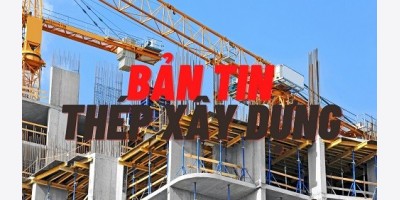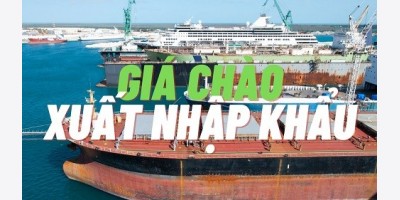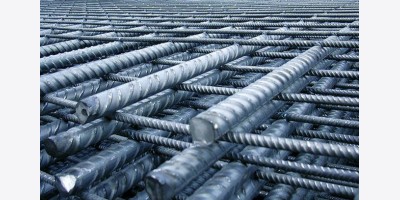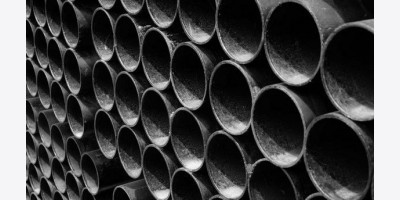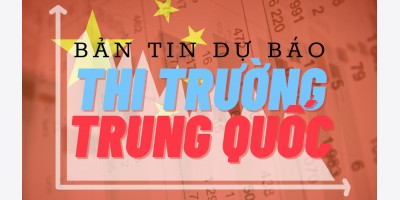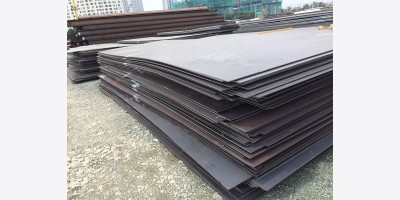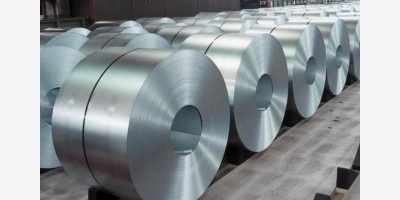Slab import prices soften in East Asia
Slab import prices in East Asia are easing this month in line with the sharp decline in regional prices for hot rolled coil and plate. While some traders confirmed lower transaction prices, others agreed that slab prices must fall but are unsure of recent transaction prices.
Some recent bookings of commercial re-rolling grade slab from Russia were heard to have taken place at $540/tonne cfr Taiwan, and CIS-origin slab was reportedly sold into the region at $550/t cfr two weeks ago. These compare with import prices at $580-590/t cfr Taiwan in end-May.
"There are not many deals, or else everyone would have heard about them," a Taiwanese trader said. He agreed that the heard prices of $540/t cfr made sense from the re-rollers' perspective but from the sellers' viewpoint – unless they needed to liquidate – at these low prices it was more profitable for them to sell HRC in Europe rather than slab to Asia.
“Slab prices had to come down because HRC prices are heading towards $600/t fob,” a regional trader noted. However, steel production costs are likely to stabilise because iron ore prices have done so recently, he added.
Trading sources noted that, should steel prices decline further, mills are likely to implement production cuts in order to ensure that they do not operate at losses. “There is no more room for further cuts in slab prices,” said a Korean trader.
A regional trader reported that a parcel of rerolling slab from Central America sold at $575-580/t cfr Thailand in early June. "This represents a $25/t drop," he said.
[Steel Prices] [related articles] [print] [your comment]
[back to top]
Korean billet exports quiet, as mills resist low prices
The export market for Korean billet has been dull so far this week with few transactions heard. Major billet exporters contacted by Platts Steel Business Briefing said that they were considering skipping exports for July and even August.
“We can sell billet for end-July or early August shipment, but we’re not willing to do it because buyer bid prices are too low,” a billet producer in Seoul said. His buyers in Bangladesh are asking only around $610/tonne cfr, equivalent to $580/t fob. “We cannot afford this as our booking prices the previous month were as high as $640-650/t fob.”
Southeast Asia is a key destination for Korean billet, yet buyers in the region are also reluctant to book. Their stock levels are still high given the weak domestic demand for finished products there, market sources noted.
“Most likely there will be no billet exports until August shipment,” a Hyundai source told Platts SBB. The company said its export tenders have generated no bookings since end-May.
Meanwhile, last week a Korean mill sold 10,000 tonnes of billet at $600/t fob to a local trading firm. The company declined detailed comment but said “the prices were not satisfactory at all.”
In April, Korean mills produced 1.08mt of billet, up 12% year-on-year, according to Korea Iron & Steel Association data. The total production during January-May reached 4.07mt, up 10% y-o-y. May data are not yet available.
[Steel Prices] [related articles] [print] [your comment]
[back to top]
Algerian rebar buyers out of market, offers down
Buyers of rebar in Algeria are currently avoiding placing large orders from European mills, as the latest development in the international steel prices and exchange rate have raised some concerns among importers.
This week market sources reported some discounted offers having been received in the market, with suppliers having in some cases lowered their offers by almost $20/tonne in the last week, to $650-655/t cfr Algeria.
Nevertheless this is not said to be attracting interest, as buyers are expected to resume buying only in mid-July, ahead of the Ramadan. Stocks at importers are considered high enough to hold off from the market for some weeks. In addition to that, a source reported that during the last week one supplier is trying to place additional rebar lots following order cancellations, adding pressure onto the market.
From South Europe most mills are trying to hold their selling prices at €505-510/t fob, but some aggressive offers this week have been heard in the market at €500/t fob.
“Italian mills said they'd rather lower output than lower their selling prices, but a Spanish supplier has been sending out aggressive offers at the beginning of the week,” a trader in the region commented. “Lowering prices will not attract the interest of the Algerian buyers; the market is ready to pay $670-675/t cfr, but most importers have now decided to avoid placing new orders to understand better were the international market will head.”
[Steel Prices] [related articles] [print] [your comment]
[back to top]
August load billet sale hints at more weakness in Black Sea
An early-load August billet sale was made at $540-542/tonne fob Black Sea this week on 100% pre-payment with at least one large trading company buying from the 40,000 tonnes offered from the mill, market players told Platts Steel Business Briefing on Wednesday.
Market participants agreed that few traders or producers—outside those in Saudi Arabia—would consider taking a position that large for early August in today’s market conditions, and concurred that below $550/t fob mills would not be willing to sell. “I heard of negotiations going on for a smaller load [5-10KT] of July production with the trader bidding $550/t fob, but mills are trying to resist these levels,” one trader said. Platts daily assessment fell $10/t to $550/t fob Black Sea Wednesday on the back of weaker sale levels in the above tender.
The large trader involved in the August-load business was able to book below what other traders consider the spot price in part because the sale was full pre-payment and also because the buyer took a large consignment from the selling mill for July load at a price much higher than today’s spot market, another international billet trader said. “There are few people consistently turning over tonnages other than a few off-takers and Saudi Arabian mills purchasing,” the trader went on.
Turkish mills are chasing numbers that are still outside of workable international levels, although one billet-producing mill there suggested falls are likely this week. “Kardemir only sold 1,000 t at their opening price of $570/t ex-works,” the sales manager said. “This is on very preferable buying terms (3-month payment), but people still aren’t buying anything.”
[Steel Prices] [related articles] [print] [your comment]
[back to top]
Aceros Arequipa's new mill to start by the end of 2012
Peruvian firm Aceros Arequipa's new rolling mill in Pisco is expected to come onstream by the end of the year, a company executive told Platts SBB. Initially, comissioning was scheduled to begin in the second quarter.
According to the executive, about 80% of the mill's foreign-sourced equipment has already been delivered.
The US$100m longs mill will basically consist of a reheating furnace and a rolling mill with a capacity of 650,000 tonnes/year.
"This will almost double the plant's finished steel capacity to 1.1m t/y," the executive said. "Demand is firm right now. Peru is a small country, but the construction sector is at a strong moment."
The steelmaker expects to produce 700,000 t of long products this year.
[related articles] [print] [your comment]
[back to top]
Line pipe market outlook gloomy in the USA
American market sources who spoke to Platts SBB on Wednesday had very few positive things to say about the line pipe market.
“Gray clouds everywhere,” said one southern trader. “Most (traders) are very hesitant to take positions with daily negative news.” He added that mills are desperate to maintain market share and allowing pricing to slip.
A second southern trader added that there will likely be “no real improvement this year.”
A midwestern trader blamed the state of the market on oversupply, which is evident in both domestic and imported products, and the weakness of the HRC market.
“When supply outpaces demand, it makes no difference how strong demand is,” he said. “Plus, the overall mood right now stinks. All tubular products are following coil prices on the way down.”
[related articles] [print] [your comment]
[back to top]
Chinese domestic ship plate prices edge up
Domestic prices for 20mm thick ship plate in China have recovered by RMB 39/tonne ($6/t) on average in the country’s nine major consuming centres over the past five days, local industry sources reported on Tuesday. But given the global overcapacity in shipping, the longer term market prospects for plates remain negative.
As of 11 June, prices of 20mm ship plates averaged RMB 4,567/t including 17% VAT as against RMB 4,528/t on 6 June, China’s most authoritative shipbuilding industry news website, shipol.com, reported Tuesday. However, even after the recovery the price was still RMB 91/t lower than the month-ago average of RMB 4,658/t, the data showed. Moreover, the price recovery could just be temporary, market sources warned Platts Steel Business Briefing.
The global shipping market still suffers from serious overcapacity, and China’s shipbuilding industry is struggling with declining orders and lower sales, they argued.
During January-April, China’s shipbuilders completed vessels equivalent to 15.65m deadweight tonnes (dwt), down 17% year-on-year, according to the latest statistics from the China Association of National Shipbuilding Industry (CANSI). New orders the builders received over the four months fell by 46% y-o-y to 7.37m dwt, within which orders for export accounted for 5.58m dwt, down 49.5% from a year ago, according to CANSI.
Prices of 20mm ship plate in east China, a major shipbuilding hub and host to several plate producers, were around RMB 4,200-4,300/t on Tuesday, significantly lower than the country’s average.
[Steel Prices] [related articles] [print] [your comment]
[back to top]
Billet prices stable in northern China
Billet prices in northern China remained stable on Wednesday. Weak downstream steel demand was not sufficient to support any sustained increases in billet prices, market sources told Platts Steel Business Briefing.
A Tangshan trader said finished steel buying has remained slow, putting the brakes on rapid increases in billet prices. He thought the billet market was still in a process of de-stocking and continued price increases are not very likely to happen until this is completed.
Billet prices in Hebei province’s Tangshan city rose by a significant RMB 70/tonne ($11/t) last Thursday and increased a further RMB 10/t on Friday. But prices then dropped by RMB 30/t over the weekend. Mills’ attempts to push up prices by RMB 10/t on Monday again failed and prices retreated on Tuesday. Ex-works prices for 150x150mm Q235 billet from major local mills stood still on 13 June at about RMB 3,580/t ($562/t), with 17% VAT and on a cash-payment basis.
Meanwhile, Yanshan Iron & Steel, a major strip maker in Tangshan, settled the billet price at its latest weekly auction at RMB 3,620/t, up by RMB 65/t from last week.
Some traders have been holding back on sales to avoid registering big losses on material purchased for more than current prices; this should prevent prices from falling steeply by limiting availability, another Tangshan trader suggested.
China's 150x150mm Q235 billet price
©SBB 2012
RMB/tonne
Incl. 17% VAT
Excl. 17% VAT
Tangshan
3,580
3,060
[Steel Prices] [related articles] [print] [your comment]
[back to top]
China's stimulus may not boost rebar demand until September
Beijing’s stimulus policies, including measures to hasten approval of infrastructure investments, will take time to translate into demand and it is too early to see any noticable increase in requirements for construction steel, market sources say. Northern China’s rebar prices continued to hold steady on Wednesday.
A trader in Beijing told Platts Steel Business Briefing that the market may not improve until September at the earliest when the stimulus policies are likely to begin to have an effect. Prices for popular sizes of rebar (18-25mm diameter) have basically remained unchanged, with some smaller diameter materials slowly inching up due to slightly tight supply, he added.
An analyst in Beijing suggested that some projects have moved at a slow pace because of concerns over the uncertain economic outlook, as well as because of restrictions on credit. Should market confidence improve or economic trends become more clear, these projects could speed up and generate additional demand for steel, he noted.
On Beijing’s spot market, prevailing offers for 18-25mm diameter HRB400 rebar sourced from Hebei Iron & Steel (Hegang) were around RMB 4,170/t ($655/t) and lower offers of RMB 4,160/t have been gradually disappearing from the market. Meanwhile, prices for Hegang-sourced 18-25mm diameter HRB335 rebar were hovering at about RMB 4,100/t. Both prices include 17% VAT.
Futures prices have also barely moved. The widely-traded October rebar contract on Shanghai Futures Exchange (SHFE) closed at RMB 4,102/t, up by RMB 2/t or 0.05%.
China's 18-25mm HRB400 rebar price
©SBB 2012
RMB/tonne
Incl. 17% VAT
Excl. 17% VAT
Beijing
4,170
3,564
[Steel Prices] [related articles] [print] [your comment]
[back to top]
Jindal Stainless asks for dumping duties on wide coils
India’s largest stainless steel producer Jindal Stainless has asked the government to extend existing anti-dumping duties on stainless cold rolled flat products to wider coils, company officials told Platts Steel Business Briefing.
Jindal Stainless has asked that dumping duties be extended to stainless CR products up to 1,650mm wide as the company is now able to produce CRC to that width. Dumping duties are currently only applied to widths of 600-1,280mm for mill-edge and 600-1,254mm for trimmed-edge CRC, as the duties were introduced when the steelmaker was not producing CRC wider than 1,250mm, officials said.
Jindal claims this has resulted in importers circumventing the dumping duties by importing wider CRC and slitting the coils into narrower widths for final application.
Imports from China have risen substantially, particularly in the past two years, noted one spokesman. “China’s is experiencing overcapacity and this surge in imports is not only happening in India but all over the world,” he said.
In February 2010 India introduced definitive anti-dumping duties of $13-2,254/tonne on CR flat products 600-1,250mm wide and up to 4mm thick, in 200-, 300- and 400-series stainless from the EU, USA, South Africa, China, Korea, Taiwan, Malaysia and Thailand.
Last year it included a “tolerance limit” of +30mm for those with mill-edge and +4mm for those with trimmed-edge after Jindal complained that importers were circumventing anti-dumping duties by declaring products to be of 1,251-1,300mm, as Platts SBB reported.
[Steel Prices] [related articles] [print] [your comment]
[back to top]
Special Report: China automotive to face tough 2012
China's vehicle sales and output are likely to see limited growth this year and stimulus policies may have little impact, Platts Steel Business Briefing has been told. One source at auto sheet producer Baosteel expects China’s total vehicle sales to grow just 3% this year, compared to the China Association of Automobile Manufacturers (CAAM) latest forecast of 8%.
China’s vehicle output and sales over January-May increased 3.2% and 1.7% year-on-year to 8m and 8.02m units respectively, but both fell month-on-month in May by 4.7% and 1.1%, according to CAAM data. Maanshan Iron & Steel (Magang), which saw autosheet sales expand rapidly over 2009-2010, only managed to keep autosheet sales level last year at 770,000-800,000 tonnes, an official at the company notes.
Local brands have fared particularly badly. Over January-May, as overall passenger car sales increased 5.5% y-o-y to 6.33m units, the figure for local brands dipped 2.1% to 2.65m units, CAAM data show.
Chery Auto’s output and sales currently stand at only 60-70% of their level in 2009, when China’s lavish RMB 4 trillion stimulus package spurred car buying, a source close to the company says. Subsidies this year could mainly benefit truck producers' sales in rural areas and have little impact on passenger cars, the source says.
In fact, commercial vehicles have fared even worse, with output and sales down 11.9% and 6.6% in May from April and down 9.3% and 10.3% y-o-y in January-May. Government subsidies for the auto sector this year will have limited effect, and heavy truck sales volume could be down 20% y-o-y in 2012, the Magang source notes.
Any boost for truck sales may only take effect in the second half this year and will be small because the slowdown of economic growth and high inflation have weakened people's purchasing power, the source close to Chery believes.
One major local heavy truck producer in Chongqing has only achieved 40-45% of its monthly sales target since March, a source in the municipality tells Platts SBB. Meanwhile, a truck producer in northern China’s Baotou city has seen output shrink to around 40% of usual levels, while the truck output and sales at another producer in eastern China’s Anhui province has decreased by 30% y-o-y in recent months.
[related articles] [print] [your comment]
[back to top]
UK coil market awaits more clarity after Tata price increase
The UK coil market is currently in a waiting position, following the announcement by the main local supplier, Tata Steel, of its intention to increase prices all over Europe by some €20/tonne, as reported by Platts SBB.
While sources at distributors and service centres continue reporting a “satisfactory” real demand for coil products in the country, price levels in the market are unclear. Tata Steel has announced to clients in the UK that all offers made before the price increase announcement are not valid anymore, according to a senior source in the market. For S275 hot-rolled coil, the supplier is expected to re-start offering later this week at some £10/t above the latest offer levels of £480/t ($747/t) DDP West Midlands.
Meanwhile, sources reported that the other HRC local supplier, Mechel Services, has not announced any new prices so far. The latest level communicated to customers was of £468-470/t DDP West Midlands, but if the market picks up slightly it could go up by some £5/t in the coming weeks, a source said.
On the import side European mills remain the most competitive in the market, as offers from third countries are still uncompetitive. A buyer reported having received an offer from Belgium for HRC at £460/t DDP West Midlands, for August arrival, while a trader confirmed tonnages available at £450-460 CFR UK, but stressed it is still to understand whether major European suppliers will achieve announced increases.
“If the mills hold tight to their announcements, we could see some price increases during the next couple of weeks. All suppliers are managing their output in the UK and Europe,” a service centre source said.
[Steel Prices] [related articles] [print] [your comment]
[back to top]
Uncertainty in Italian market, as Riva mulls prices
The Italian coils market is reported to be "stuck" after ArcelorMittal’s recent move to increase strip prices. The largest Italian producer, Riva, is not quoting at the moment while ArcelorMittal in Italy has not closed any significant contracts since the increase, market participants told Platts SBB.
According to many sources in the market, Riva was taken by surprise by ArcelorMittal’s announcement and is debating how to respond. As previously reported, the company has decided to close strip mill number 1 as well as the electro-zinc line, indicating that it is ready to cut back trip production.
Until last week, Riva was quoting HRC below the €500/t ex-works mark, and some service centres bought at €495/t ex-works base prices, market participants said. “Riva is not quoting, but if you are ready to place a substantial order, it might be interested in closing it with you at the old prices”, a service centre source said.
Most Italian large buyers are still delaying purchasing decision, using stocked material. Others are trying to close open deals “at the old prices”.
“High prices are good for everyone, but I don’t want to be the first to pay the increases … about the auto contracts with some suppliers we are starting to think to change the contracts from 6 months to 3 months to cover us and them if prices change”, another service centre said.
“Large automotive producers have to understand that they can’t use the spot price as a benchmark when it is low and not really when it is too high … this time I think the automotive contracts will be made based on an average and a lot of clauses”, he added.
[Steel Prices] [related articles] [print] [your comment]
[back to top]
Kardemir reduces prices in softening Turkish market
Turkish integrated long steelmaker Kardemir has reduced its bar, billet and pig iron prices, following softening scrap and finished product markets in Turkey.
Kardemir’s new round bar price is at TRY 1,153/tonne ($632/t), valid from yesterday (13 June), down TRY 54/t ($30/t). Its rebar price also declined TRY 54/t to TRY 1,136/t ($622/t) excluding 18% VAT.
The company’s new billet prices are at $560-575/t, $40/t lower than last month. Its bloom price was also cut $40/t to $678/t, Platts Steel Business Briefing learned from the company.
Kardemir reduced its pig iron prices by $25/t to $505-525/t for foundry pig iron and $460-495/t for steelmaking pig iron. These prices exclude 18% VAT.
[Steel Prices] [related articles] [print] [your comment]
[back to top]
Turkish mills hike rebar sales to Dubai in June, prices down
Turkish rebar tonnages exported to the United Arab Emirates have increased for June shipments, with the last contracts inked in recent days at $620-630/tonne cfr Dubai theoretical weight for top-up cargoes added to previous handysize sales, market participants told Platts Steel Business Briefing.
Some 100,000t of rebar was sold for June shipment to the UAE from Turkey, around 30,000t more than in previous months. This increase is attributed to local producer Emirates Steel carrying over its June output price, allowing for a greater level of imports. Platts daily Turkey rebar assessment slipped $10/t to $610/t fob on Wednesday.
In previous months, Turkish mills were selling further ahead; lead times have now shortened as these mills struggle to sell large tonnages into other important markets, including domestically. Now they are selling material for delivery at the same time as UAE domestic product. “It’s a buyer’s market: the importers here can buy rebar from the large Turkish producers, and they’ve still got the possibility of trucking it to Saudi Arabia where they can still make a margin on it,” one UAE-based trader said.
“Local prices in the UAE are likely to fall for July output and buyers will probably hold off booking much of July shipment from the two largest Turkish suppliers before the announcement,” an importer said. “Turkish mills were offering June shipment until a couple of days ago,” a second importing trader said. “Prices began for June shipments at $650-655/t cfr Dubai, but have now slipped significantly as scrap, billet and rebar prices have weakened everywhere.”
[Steel Prices] [related articles] [print] [your comment]
[back to top]
Tosyali to triple capacity of Montenegrin mill by 2015
Turkish steel producer Tosyali Holding, which recently acquired Montenegro’s special and carbon steel bar producer Zeljezara Niksic (ZNK), plans to invest €35 million ($44m) in the Balkan plant over the next three years with the view to ZNK achieving an annual turnover of €500m by 2015.
ZNK currently has a 120,000 tonnes/year production capacity and employs 308 people; Tosyali plans to increase this to 400,000 t/y and 550 people. The Turkish firm aims to make ZNK a center for engineering steel, from which products will be delivered to Serbia, Greece, Italy, Slovenia, Bosnia, Croatia, Romania and Turkey.
As a result of the acquisition, Tosyali now offers engineering steel among its products and has 15 facilities; this will be increased to 16 in three different countries once the firm’s Algerian rebar mill is completed, said president of Tosyali Holding’s board of management, Fuat Tosyali. The 1.25m t/y rebar mill is scheduled for commissioning this September, Tosyali confirmed.
Tosyali produces hot rolled coil, tube and pipe, billet, sections and angles.
[related articles] [print] [your comment]
[back to top]
Russia's VEB bank seeks partner for loss-making Amurmetall
Russia’s state-owned Vnesheconombank (VEB) is seeking a buyer for Amurmetall, the 2.2m tonnes/year capacity steelmaker in Russia’s Far East. It has forwarded an offer to the plant’s former owner Alexander Shishkin. But only defence industry supplier Uralvagonzavod corporation, another 100% state property, has filed an official expression of interest, Platts Steel Business Briefing learnt from a representative of VEB.
“As a bank, we are not in the position to efficiently manage a steel plant”, the VEB representative explained. “Uralvagonzavod isn’t a final bidder, but we are in discussions with it on forms of possible co-operation”, she added.
VEB is continuing looking for “an investor, a solid company with expertise in the steel industry and markets, which will be able to offer strategic vision for Amurmetall and draw up a viable business plan”, Platts SBB is told. Local analysts believe none of Russia’s major steel companies are interested. The deal between VEB and Uralvagonzavod is likely to go ahead, they reckon, and may be cash-free if the plant is taken over in a debt-equity swap.
Amurmetall owes VEB 5.3bn roubles or a fifth of its total debt. VEB froze the plant’s financing in late May, when Amurmetall failed to make a payment that was due under the lending conditions agreed with VEB.
After Amurmetall idled operations in response, VEB had to shortly resume cash injections to prevent social unrest: some 700 workers wrote to the Russian presidential envoy in the Far East, alerting him to the steelworks’ looming bankruptcy. Amurmetall is now running at a very low capacity-utilization level receiving scrap from firms affiliated to Shishkin, SBB understands.
[related articles] [print] [your comment]
[back to top]
Russian steel consumption seen growing 4% this year
Russia’s consumption of steel products in 2012 is expected to total 42.2m tonnes and thus exceed last year’s by 4%, according to a forecast by the steel producers group Russkaya Stal (Russian Steel).
Steel consumption is Russia may grow despite the slowdown in the global economy. In 2011, Russia topped its pre-recession steel use level by having absorbed 40.5m t, Platts Steel Business Briefing learnt from Russkaya Stal.
This year, steel consumption in Russia is mainly driven by the recovery of the construction sector and the continued growth of some other end-user sectors including car and machine manufacturing industries.
According to the national statistics on the performance of the construction sector, January-March saw a 2% year-on-year rise in the number of completed buildings, but a more significant 11% increase in their square metre dimension. Of the 42,780 new buildings erected in Russia in the first quarter, 93% were houses and 7% non-residential buildings.
The increase was driven by a surge in the number and floor space of non-residential buildings by 43% and 31% respectively. Residential buildings’ floor space went up just 7%, reported the federal statistics service Rosstat.
Meanwhile, Russia’s car sales went up 15% y-o-y to 1.14m vehicles in the first five months of 2012, according to Association of European Businesses, which predicts the Russian car market to reach 2.85m units this year.
[related articles] [print] [your comment]
[back to top]
Nucor's contract sheet surcharge to decrease $65/s.ton
Nucor said the monthly scrap surcharge on its contract sheet prices will fall by $65/short ton, due to a similar drop in a benchmark scrap price the North Carolina mill's uses to set the surcharge.
In a letter to customers, Nucor said the new raw material surcharge (RMS) will be $210/s.t for all RMS-based orders with a scheduled delivery date the week ending July 7 through July 28.
The monthly sheet RMS announcement, which is based on a Chicago No 1 busheling scrap benchmark price, does not include base price offsets like those often made when shredded scrap-based surcharges for longs and plate products are announced by the leading steelmaker. So, Nucor's contract sheet price, if unaffected by any other contract terms, will decline by $65 for July deliveries.
The contract RMS decline mirrors what's happened in the spot market. Prices have been trending down for weeks, and as recently as the beginning of May, spot hotrolled coil prices were in the range of $670-690/s.t.
Platts Steel Business Briefing's current assessments for HRC and coldrolled coils stand at $620-630/s.t and $720-740/s.t, respectively. Hot-dip galvanized is $780-790/s.t. All prices are ex-works normalized to a midwestern US basis.
[Steel Prices] [related articles] [print] [your comment]
[back to top]
US G-O electrical steel extras to stay flat in July
Grain-oriented electrical steel surcharges will stay relatively flat from June to July, according to price tables released by US producers AK Steel and Allegheny Technologies Inc (ATI).
AK is holding its surcharge steady from June to July at $360/short ton. ATI’s surcharge will experience a slight dip, falling from about $404/s.t to $401/s.t. ATI has also revealed that its August surcharge will be about $370/s.t.
AK and ATI are the two primary US of G-O electrical sheet. Their surcharge methodology differs, though base price adjustments ensure pricing is comparable.
[related articles] [print] [your comment]
[back to top]
Baltimore scrap yard seeks return of RG scrap
A Baltimore scrap yard is seeking the return of over $600,000 worth of steel scrap it delivered to the now idled RG Steel Sparrows Point steel mill.
Baltimore Scrap Corp (BSC) has served RG Steel Sparrows Point with a demand for reclamation of goods for unpaid material the scrap yard sold to the Maryland-based steel mill. The notice was filed in US Bankruptcy Court in Delaware on June 12.
The goods in question are $619,905.87 worth of scrap metal, including shredded and plate and structural grades, received by RG Steel between May 5 and May 24. In the letter BSC said it has not been paid for any of the material and that it is seeking the immediate return of all the goods.
On May 31 RG Steel LLC filed for Chapter 11 bankruptcy protection.
[related articles] [print] [your comment]
[back to top]
Nucor's second quarter guidance slightly below Q1
Nucor’s second quarter earnings guidance fell slightly below its first quarter performance partly because of an expected impairment charge and the depressing effect of imports on domestic pricing, the company reported.
The company estimates that Q2 earnings will be between $0.35 and $0.40 per diluted share. With about 317.1m shares outstanding that’s about $111m-126.8m. Q1 earings were $0.46/share, or $145.1m. This year’s Q2 estimate is significantly lower than earnings in Q2 2011 of $0.94/share.
Nucor noted that its published guidance takes into account an expected impairment charge of about $30m ($0.09/diluted share) related to its Duferdofin Nucor joint venture in Italy, so its earnings are in line with the company’s Q1 results and the “modest improvement” projected in the latest quarterly earnings call.
The surge in imports in the first half of the year undercut the seasonal pricing momentum, the company said. Lower scrap pricing is also hurting operating performance in the company’s scrap processing ventures but will benefit the mill operations.
All three of Nucor’s construction products groups – rebar fabrication, joist and decking and pre-engineered metal buildings – turned profits in May. Nucor said its strongest end markets are still the heavy equipment, energy and auto industries.
Nucor’s Q2 earnings will get a boost from an estimated $14.5m LIFO credit ($0.03/diluted share), compared to $14.5m in Q1 charges.
[related articles] [print] [your comment]
[back to top]
Brazil's tube imports increase 18% m-o-m in May
Imports of tubes and pipes in Brazil increased 18.6% month-on-month in May to 22,010 tonnes, and were also 40% higher than the same period last year of 15,679 t.
Statistics compiled by the national foreign trade ministry MDIC show that shipments of foreign seamless tubes to Brazil jumped 51% last month to 13,640 t, from 9,058 t in April. Meanwhile, imports of welded tubes totaled 8,370 t in May, up 26.4% from 6,621 t the prior month.
Of this total, around 45% was exported from the Asian countries, with 6,233 t of seamless tubes, compared to 5,777 t in April.
As for welded tubes, 45.7% also came from Asia, with 4,371 in May, against 2,462 t the previous month.
"With the appreciated US dollar imports in Brazil have completely stopped," a local tube importer told Platts SBB. He believes the dollar will go down in the near future.
"I expect the same move seen during the 2008 crisis, when the North American currency jumped to high levels but suddenly dipped, boosting imports."
Domestic players, in turn, have been fighting against tube imports, which totaled more than 240,000 t in 2011.
[related articles] [print] [your comment]
[back to top]
Argentina construction boom could boost steel output
Argentina's steel output for the construction sector could increase by 72% by 2020 (versus 2011 figures), mainly driven by optimistic prospects for the domestic construction market, which is expected to grow 82% in eight years.
Speaking at an meeting with market participants, Argentinian industry minister Débora Giorgi said that production of such steel products may reach 9.3m tonnes in 2020. She noted that construction now represents 5.7% of Argentina’s GDP.
Carlos Wagner, president of the country’s construction chamber, said, however, that the construction sector is not growing at the same rate it used to, but affirmed it will change gradually.
“We have to wait and see how the sector will react to investments in private construction, which already account for 75% of the projects in the country,” he said.
[related articles] [print] [your comment]
[back to top]
Demonstrators force AM Annaba to halt production
The only crude steel producer in Algeria, ArcelorMittal, has been forced to stop production at its blast furnace and its rolling mills in Annaba since Tuesday evening, according to local press reports. Demonstrating former employees have prevented the workforce from entering the plant.
Operations at the site have been disrupted since mid-May. According to press reports, the company has been forced to temporarily halt ironmaking at the site on several occasions since then. The site's general manager, Joe Kazadi, has been quoted by local press saying that the company already asked the intervention of the authorities to solve the issue.
ArcelorMittal did not respond to requests for comment prior to press deadline.
[related articles] [print] [your comment]
[back to top]
UAE flats trade remains slow, HRC import offers down $20/t
Flat rolled steel market activity in the United Arab Emirates has failed to pick up from last week, as buyers are postponing bookings with the summer holidays and Ramadan approaching. Weak global economic sentiment and uncertainty over the future of raw material prices is also hampering trade.
Local producer Al Ghurair has cut its hot-dip galvanized price by $20/tonne since last week to $870-880/t ex-works, a company executive told Platts Steel Business Briefing. Other local producer Asian Ispat’s HDG price remains at last month’s level of $900/t ex-works. Both companies’ export offers are level with domestic prices on a fob basis.
Hot rolled coil import offers to the UAE have also softened by $20/t to $620-650/t cfr. Meanwhile, Ukrainian offers of HRC are at $580-590/t cfr.
Sources anticipate further price cuts as consumption is decreasing and there is no sign of improvement in the short-term.
[Steel Prices] [related articles] [print] [your comment]
[back to top]








